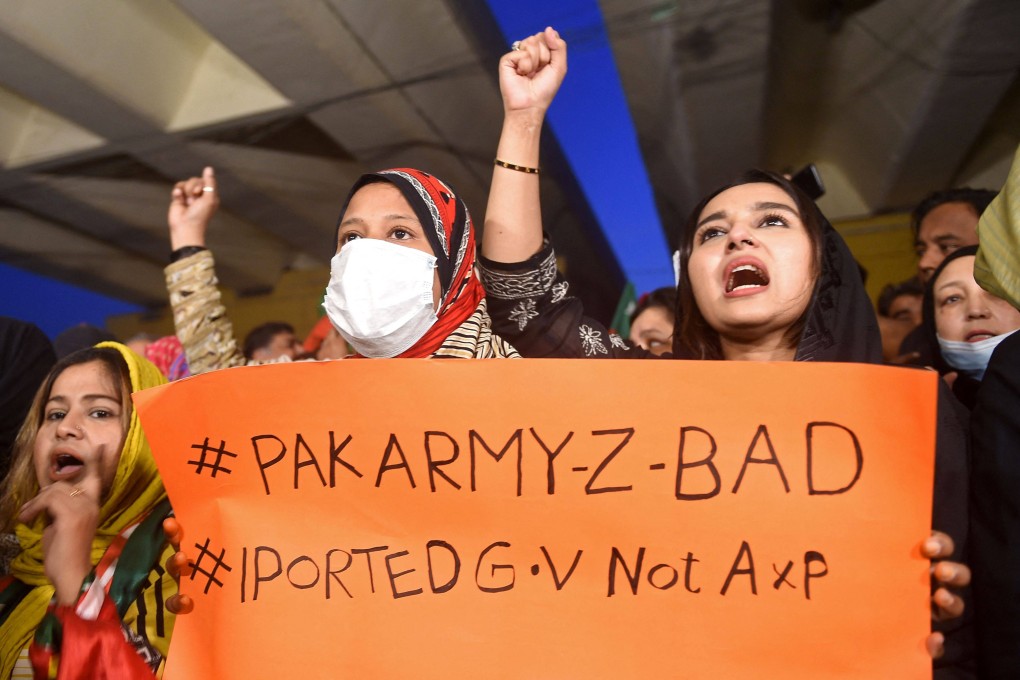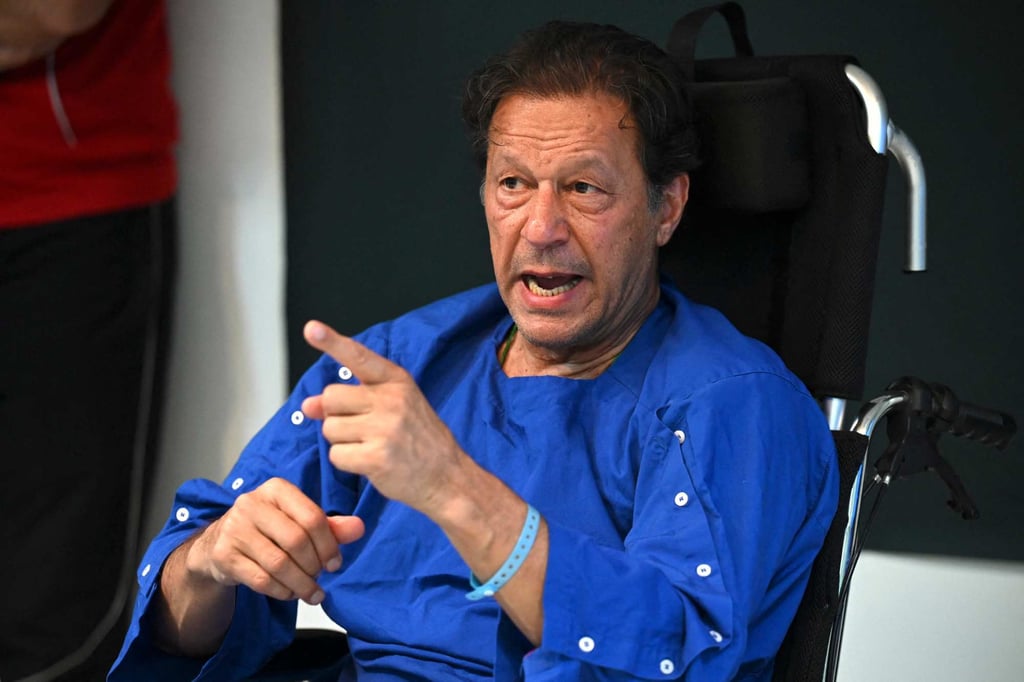‘All bets are off’: tensions between Imran Khan, Pakistan military threaten to erupt into chaos
- Analysts say collision course ‘inevitable’ as long march set to continue to Islamabad and former PM, generals ramp up pressure on each other
- Khan’s extreme tactics have put those backing him on the defensive, as military aims to take ‘toughest possible line’ against former PM

Tens of thousands of activists from Khan’s Pakistan Tehreek-e-Insaf (PTI) party are set to resume their “long march” to the capital later this week with the goal of forcing the resignation of the shaky coalition government and the calling of a snap election.
“Khan seems to relish confrontation but his political career usually involved confronting civilian politicians with the military establishment’s support,” said Husain Haqqani, director of South and Central affairs at the Hudson Institute, a Washington-based think tank.

Prime Minister Shehbaz Sharif’s coalition government, which replaced Khan’s administration after a no-confidence vote in April, retained its parliamentary majority and, so far, the military’s support, he said.
“Khan’s only hope is to make Pakistan ungovernable and to provoke military intervention. But if the military intervenes, it will not do so to put Khan in office even though that is what he wants them to do,” said Haqqani, who was Pakistan’s ambassador to the United States between 2008 and 2011.
After two decades as a peripheral figure in Pakistani politics, Khan became prime minister in 2018, following a general election campaign marred by interference by the military and judiciary.
He lost the military’s support last year because the PTI-led government grossly mismanaged the economy, bringing Pakistan to the brink of a default by the time it lost a no-confidence vote in April.